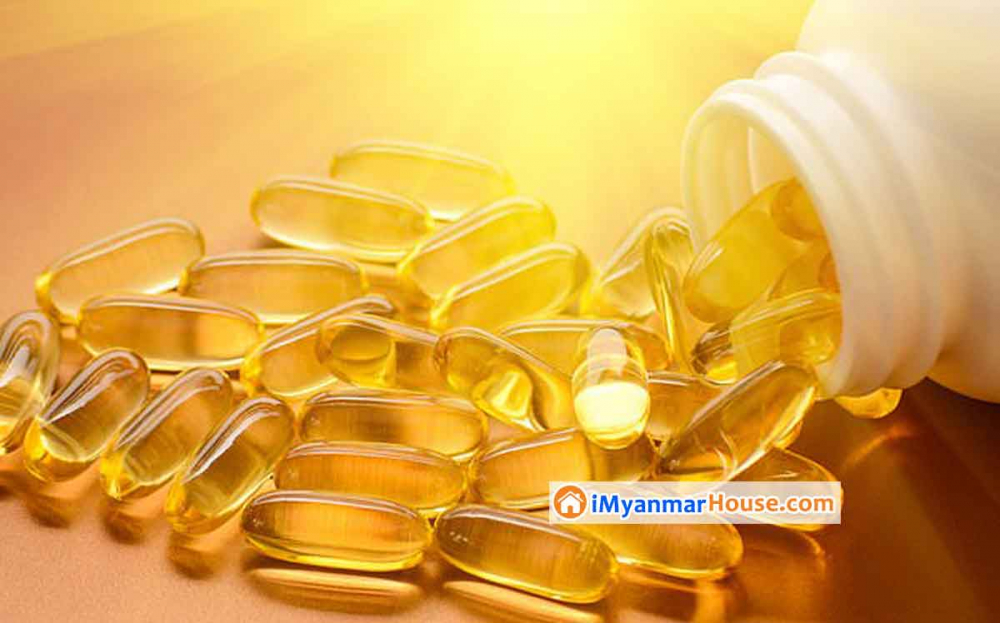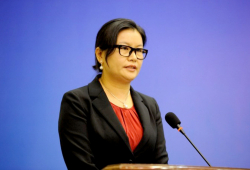
Foreign Property News | Posted by Si Thu Aung
Doctors will finally trial whether vitamin D can actually protect people from Covid-19 amid mounting evidence the 3p-a-day supplement could be a life-saver.
Researchers from Queen Mary University of London will recruit 5,000 volunteers to take the vitamin for six months if they do not already take high doses.
Experts will then assess whether participants are at less risk of catching the virus and developing a severe bout of the disease over the winter months.
A mountain of studies have found an overwhelming amount of people who test positive for Covid-19 do not have enough vitamin D in their bodies and the sickest of patients are often deficient.
Britons are most at risk of being vitamin D deficient between October and April when sunlight levels are too low for the body to make the vitamin — with those with darker skin at even higher risk.
Around two in five Brits are deficient during the winter, when respiratory infections are most common. In the US, at least two in five citizens also lack sufficient levels of the vitamin.
It has led to calls for doctors to dish out cheap vitamin D supplements — which cost as little as 3p a day and have no dangerous side effects — to fight the disease, rather than waiting for a vaccine which may never be found.
It comes as researchers from University of Brighton have today called for care home residents to be given the 'sunshine vitamin'.
Despite health chiefs advising residents should be given supplements all year round because they rarely go outside, academics found this was not happening in care homes in the south east of England.
Trial volunteers will receive tablets containing either 800 IU or 3,200 IU a day of the vitamin, which they will be asked to take for six months.
There will also be a control group taking the NHS recommended amount of 400IU a day.
Although this level is advised for the winter months, experts said taking more wouldn't pose a risk as the vitamin is harmless and the body simply removes any excess levels.
But there is no group not taking a vitamin supplement in the trial, meaning it is impossible for the experts to accurately compare differences between the groups.
Researchers will track the incidence of doctor-diagnosed or laboratory-confirmed acute respiratory infections in participants during the trial, to see whether the supplements have affected their risk or severity of infection.
Volunteers will also be required to do a finger-prick test to check their vitamin D levels.
Dr David Jolliffe, from Queen Mary University of London, said the study had the potential to give a 'definitive answer' on whether vitamin D could protect against coronavirus.
'Vitamin D supplements are low in cost, low in risk and widely accessible; if proven effective, they could significantly aid in our global fight against the virus,' he said.
Professor Adrian Martineau, who is also involved in the study, said: 'There is mounting evidence that vitamin D might reduce the risk of respiratory infections, with some recent studies suggesting that people with lower vitamin D levels may be more susceptible to coronavirus.
Despite health chiefs advising residents should be given supplements all year round because they rarely go outside, academics found this was not happening in care homes in the south east of England.
Trial volunteers will receive tablets containing either 800 IU or 3,200 IU a day of the vitamin, which they will be asked to take for six months.
There will also be a control group taking the NHS recommended amount of 400IU a day.
Although this level is advised for the winter months, experts said taking more wouldn't pose a risk as the vitamin is harmless and the body simply removes any excess levels.
But there is no group not taking a vitamin supplement in the trial, meaning it is impossible for the experts to accurately compare differences between the groups.
Researchers will track the incidence of doctor-diagnosed or laboratory-confirmed acute respiratory infections in participants during the trial, to see whether the supplements have affected their risk or severity of infection.
Volunteers will also be required to do a finger-prick test to check their vitamin D levels.
Dr David Jolliffe, from Queen Mary University of London, said the study had the potential to give a 'definitive answer' on whether vitamin D could protect against coronavirus.
'Vitamin D supplements are low in cost, low in risk and widely accessible; if proven effective, they could significantly aid in our global fight against the virus,' he said.
Professor Adrian Martineau, who is also involved in the study, said: 'There is mounting evidence that vitamin D might reduce the risk of respiratory infections, with some recent studies suggesting that people with lower vitamin D levels may be more susceptible to coronavirus.
Ref: Daily Mail









